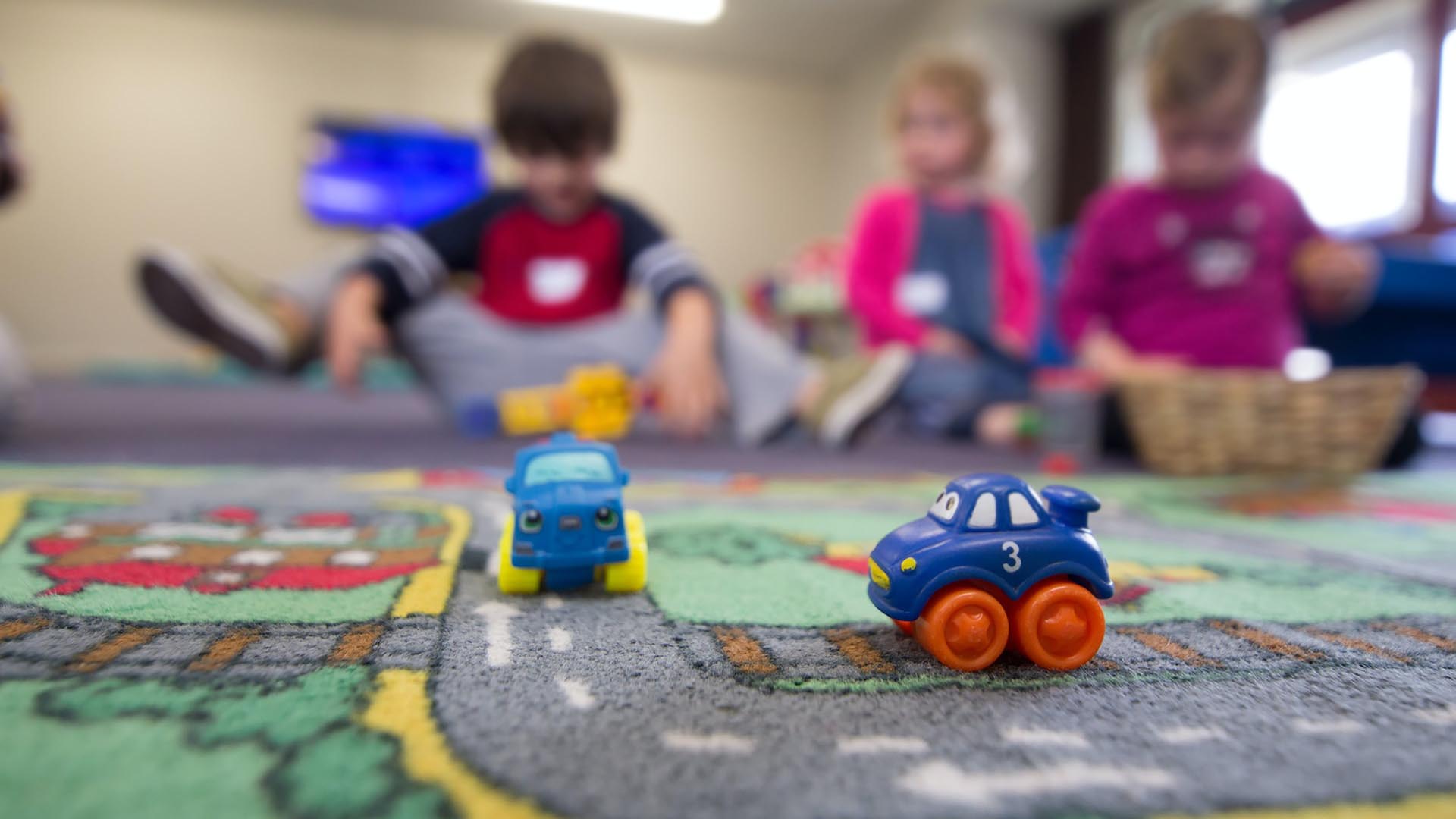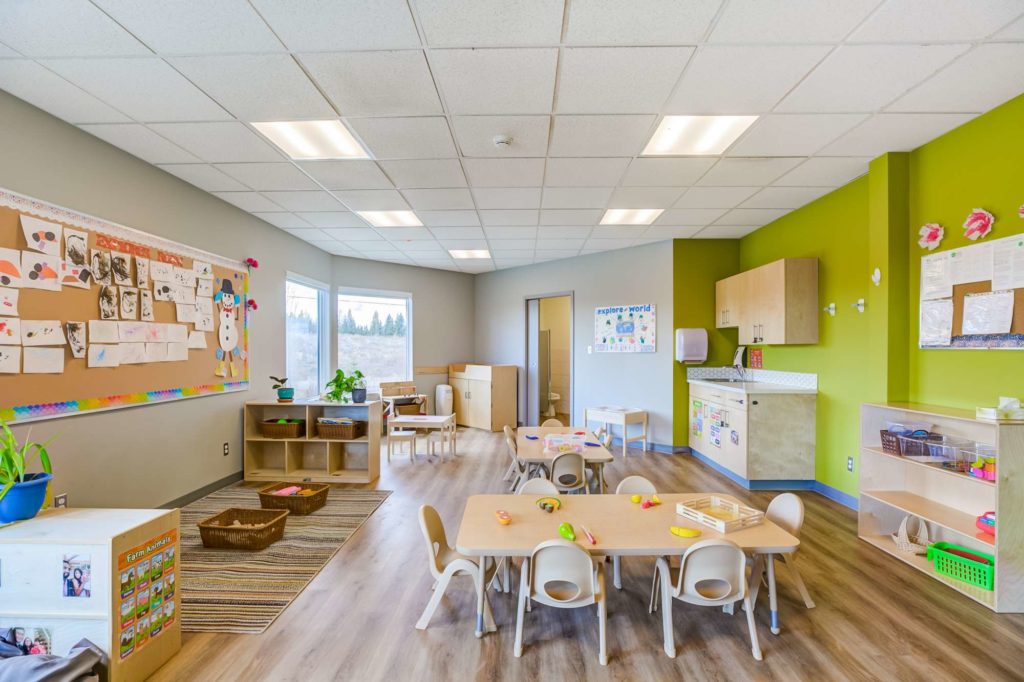The Role of Day Care in Promoting Your Young child's Psychological and Cognitive Abilities Through Organized Play and
The duty of day care in nurturing a kid's emotional and cognitive advancement is frequently underestimated, yet it offers as a critical setting for structured play and educational activities. Via very carefully developed experiences and interactions, caretakers help with essential abilities such as emotional understanding and problem-solving.
Value of Organized Play
Structured play is a crucial component of young child development, as it supplies a framework where children can involve in meaningful communications and finding out experiences. This type of play is purposefully created to foster different developmental skills, such as cognitive, social, and physical capacities. By taking part in structured activities, kids learn to comply with regulations, take turns, and work together with peers, every one of which are essential for their interpersonal abilities.

In addition, structured play commonly integrates educational components, such as counting, color acknowledgment, and language advancement, perfectly incorporating discovering into enjoyable activities. This approach not just captures toddlers' interest however also enhances vital principles in a satisfying way. On the whole, structured play contributes in advertising a well balanced growth, gearing up kids with the fundamental skills necessary for future understanding and social interactions.
Emotional Growth in Daycare
Daycare atmospheres play a critical role in promoting psychological growth in kids. These settings offer kids with chances to connect with caregivers and peers, helping with the advancement of crucial social-emotional abilities. Through regular interactions, toddlers discover to acknowledge and reveal their feelings, such as aggravation, unhappiness, or happiness, which is vital for their emotional maturity.

In addition, the structured atmosphere of childcare allows kids to experience a selection of emotions in a risk-free room. They learn to handle sensations of splitting up anxiety when transitioning from home to day care and establish strength as they navigate new connections and experiences. On the whole, the psychological development fostered in day care not only advantages young children throughout their developmental years yet also lays the groundwork for healthy interpersonal partnerships and psychological health throughout their lives.
Cognitive Abilities Via Tasks
Via taking part in a variety of activities, toddlers in day care settings can dramatically boost their cognitive abilities. Structured play and educational tasks are crucial in promoting cognitive development, as they provide opportunities for exploration, analytical, and important reasoning. Activities such as challenges, foundation, and memory video games test toddlers to think creatively and realistically, promoting crucial abilities like spatial awareness and pattern acknowledgment.
Moreover, interactive storytime sessions urge language advancement and understanding. By paying attention to tales, kids learn to refine information and involve their creative imaginations, which boosts look here their narrative abilities and vocabulary. In addition, hands-on activities including crafts and arts promote fine electric motor abilities while likewise encouraging self-expression and imagination.
Sensory play, such as sand or water activities, allows young children to trying out various textures and materials, promoting inquiry-based knowing. These experiences not only improve cognitive capacities however likewise infuse a sense of inquisitiveness concerning the world around them - toddler daycare near me. Generally, the diverse array of cognitive activities given in day care settings plays a critical duty in shaping a kid's capability to assume critically, address problems, and involve meaningfully with their environments
Social Connections and Interaction
In a caring environment, kids naturally create social links and take part in communications that are vital for their interpersonal and emotional growth. Daycare settings supply an unique chance for youngsters to communicate with peers, cultivating essential social skills such as sharing, participation, and conflict resolution. These interactions assist kids learn to navigate their feelings and recognize the perspectives of others, which are vital parts of emotional knowledge.
Via structured play and group activities, young children are urged to communicate their thoughts and feelings, enhancing their verbal skills and advertising compassion. Involving with peers also introduces them to diverse social norms and habits, improving their understanding of social characteristics. Additionally, constant communication with other children helps to build a sense of neighborhood, giving a support group that is advantageous for psychological development.
As kids participate in collaborative tasks, they learn the importance of patience, teamwork, and settlement. These fundamental social abilities are vital as they get ready for future connections, both in educational settings and past. Inevitably, the social links formed in childcare play a substantial duty fit a young child's capability to communicate positively and properly with others throughout their lives.
Duty of Caretakers in Growth

Caregivers play a critical function in promoting young child advancement, particularly in the context of the social interactions they experience in daycare settings. These specialists give a caring setting where kids can discover their emotions and cognitive abilities through structured play and . By taking part in significant conversations, caregivers sustain language growth and improve social skills.
Moreover, caretakers version proper habits and emotional responses, aiding kids discover empathy and problem resolution. Their existence also develops a complacency, which is vital for children to with link confidence discover their surroundings and involve with peers.
In addition to psychological and social support, caretakers are critical in executing instructional curricula that promote cognitive development - daycare for infants near me. They present age-appropriate activities that promote curiosity, critical reasoning, and problem-solving abilities. This organized method ensures that young children not only appreciate their play however additionally acquire fundamental knowledge crucial for future knowing
Inevitably, the high quality of caretaker interactions substantially impacts a young child's total development. By promoting a interesting and supportive environment, caretakers help lay the groundwork for healthy click here for more and balanced emotional and cognitive growth, furnishing children with vital abilities for their long-lasting journey.
Final Thought
To conclude, daycare acts as an essential environment for promoting psychological and cognitive development in toddlers. With structured play and , children experience significant growth in their capability to acknowledge and share feelings, develop vital believing abilities, and kind vital social links. The duty of caretakers contributes in helping with these experiences, making sure that each youngster advantages from a nurturing ambience that advertises long-lasting psychological health and cognitive innovation.
The role of daycare in nurturing a toddler's cognitive and emotional development is frequently undervalued, yet it serves as a critical atmosphere for organized play and academic tasks. Generally, structured play is critical in promoting a balanced development, gearing up toddlers with the foundational abilities essential for future discovering and social communications.
Day care atmospheres play a vital function in promoting emotional development in toddlers. On the whole, the psychological advancement promoted in daycare not just advantages young children during their developmental years yet additionally lays the groundwork for healthy social connections and emotional health throughout their lives.
With structured play and team tasks, young children are encouraged to connect their sensations and thoughts, enhancing their spoken skills and advertising compassion.